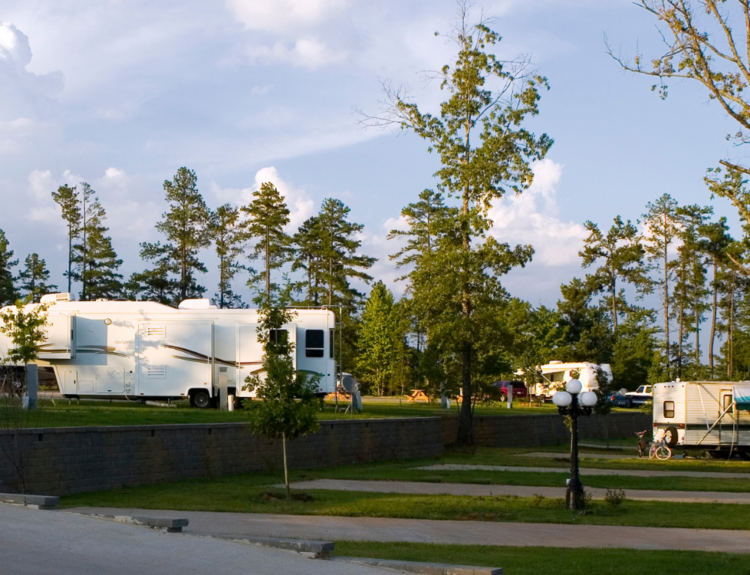The campground industry is evolving rapidly, with RV park entrepreneurs continually seeking innovative ways to enhance their revenue streams. One of the methods gaining popularity is the implementation of long-term stay options. These options not only offer a stable income but also foster a sense of community among guests, reduce operational turnover costs, and provide a unique selling point to differentiate your campground from others.
In this comprehensive guide, we will delve into what long-term stay options are, explore the different types available, highlight the benefits they bring, discuss potential challenges and their solutions, and provide actionable strategies for implementing and marketing these options at your campground.
Whether you’re a seasoned campground owner or just starting, this article will equip you with the knowledge and tools needed to successfully integrate long-term stays into your business model.
What Is a Long-Term Stay Option?
The concept of a long-term stay option refers to the offering of accommodations for extended periods, typically ranging from several weeks to several months or even longer. Unlike short-term stays, which cater to transient guests looking for a place to stay for a few nights, long-term stays are designed for guests who prefer stability and continuity in their living arrangements.
Long-term stay options can be highly flexible and tailored to meet the needs of different guest demographics, including digital nomads, retirees, seasonal workers, and families on extended vacations. These guests often seek amenities and services that mimic a home environment, such as reliable Wi-Fi, laundry facilities, and comfortable living spaces.
By incorporating long-term stay options, campground owners can attract a diverse clientele and fill occupancy gaps during off-peak seasons. Understanding the nuances of long-term stays is crucial for effectively meeting the needs of these guests and ensuring their satisfaction and retention.
What Are the Different Types of Long-Term Stay Options Available?
Implementing long-term stay options at your campground can take various forms, each catering to different guest needs and preferences. Here are some common types of long-term stay options you can offer:
1. Monthly Rentals
Monthly rentals are ideal for guests looking to stay for an extended period without committing to a permanent residence. These rentals often include discounted rates compared to daily or weekly stays and may come with added perks such as free utilities or access to premium amenities.
2. Seasonal Sites
Seasonal sites are perfect for guests who want to return to the same spot every year, typically for an entire season such as summer or winter. These sites offer consistency and convenience for guests who enjoy seasonal activities or prefer a familiar environment.
3. Extended Stay Packages
Extended stay packages can range from several weeks to a few months and are often tailored to specific guest needs, such as business travelers or families on sabbatical. These packages may include special rates, flexible check-in/check-out times, and additional services like housekeeping.
4. Year-Round Leases
Year-round leases are long-term agreements where guests commit to staying for an entire year or more. These leases are similar to traditional apartment leases and often include comprehensive services and amenities to make the guests feel at home.
By offering a variety of long-term stay options, you can appeal to a broader audience and ensure that your campground meets the diverse needs of potential long-term guests.
Benefits of Offering Long-Term Stay Options at Your Campground

Incorporating long-term stay options at your campground can bring numerous benefits that contribute to both short-term success and long-term sustainability. Here are some key advantages:
1. Stable Revenue Stream
Long-term stays provide a consistent and reliable source of income. Unlike short-term bookings that fluctuate with seasons and holidays, long-term guests ensure a steady cash flow, helping you manage your finances more effectively.
2. Reduced Turnover Costs
Frequent guest turnover can be costly and time-consuming, involving extensive cleaning, maintenance, and administrative work. Long-term guests reduce these costs significantly, allowing your staff to focus on other important tasks.
3. Enhanced Community Atmosphere
Long-term guests contribute to a sense of community within your campground. They are more likely to form relationships with other guests and staff, participate in community events, and take pride in their surroundings, leading to a more welcoming and vibrant environment.
4. Increased Occupancy Rates
Long-term stays help fill occupancy gaps, especially during off-peak seasons. By having a mix of short-term and long-term guests, you can maintain higher occupancy rates year-round, optimizing your campground’s capacity.
5. Attracting a Diverse Clientele
Offering long-term stay options broadens your target market. From digital nomads and remote workers to retirees and seasonal workers, these guests bring diverse experiences and needs, enriching the overall guest experience at your campground.
6. Competitive Advantage
In a competitive market, providing long-term stay options can set your campground apart from others. This unique offering can be a key differentiator, attracting guests who specifically seek extended stay accommodations.
7. Opportunities for Upselling
Long-term guests often require additional services and amenities, such as enhanced Wi-Fi, storage facilities, or private spaces. This creates opportunities for upselling, increasing your overall revenue per guest.
Recognizing and leveraging these benefits can position your campground as a premier destination for long-term stays, driving growth and ensuring long-term success.
Potential Challenges and Solutions for Offering Long-Term Stay Options
While offering long-term stay options has many benefits, it also comes with potential challenges. Understanding these challenges and implementing effective solutions is crucial for the successful integration of long-term stays at your campground.
1. Regulatory and Zoning Issues
Challenge:
Local regulations and zoning laws can restrict the length of stay for guests or impose specific requirements on long-term accommodations.
Solution:
Stay informed about local regulations and work closely with municipal authorities to ensure compliance. Consider hiring a legal expert to navigate complex zoning laws and obtain necessary permits.
2. Maintenance and Upkeep
Challenge:
Long-term guests can lead to increased wear and tear on facilities and amenities, requiring more frequent maintenance and repairs.
Solution:
Implement a proactive maintenance schedule and conduct regular inspections to address issues before they become major problems. Encourage guests to report maintenance needs promptly.
3. Managing Guest Expectations
Challenge:
Long-term guests may have higher expectations for amenities and services, potentially leading to dissatisfaction if these are not met.
Solution:
Clearly communicate the amenities and services included in long-term stay packages. Offer tiered packages with varying levels of amenities to cater to different budgets and preferences.
4. Financial Risk
Challenge:
Offering long-term stays can pose financial risks, such as guests defaulting on payments or occupying valuable space without paying.
Solution:
Implement strict payment policies and require deposits for long-term stays. Consider offering flexible payment plans to accommodate guests’ financial situations while ensuring your financial security.
5. Community Integration
Challenge:
Integrating long-term guests with short-term visitors can be challenging, potentially leading to friction between different guest groups.
Solution:
Foster a sense of community by organizing events and activities that encourage interaction between long-term and short-term guests. Create communal spaces where all guests can socialize and build connections.
6. Security Concerns
Challenge:
Long-term guests may pose security risks if not properly vetted, potentially leading to issues with other guests or property damage.
Solution:
Conduct thorough background checks and establish clear guidelines and rules for long-term guests. Implement security measures such as surveillance cameras and on-site security personnel.
Implementing Long-Term Stay Options at Your Campground
Successfully implementing long-term stay options at your campground requires careful planning and execution. Here are some key steps to guide you through the process:
Book a FREE, personalized demo
1. Assess Your Market
Before introducing long-term stay options, conduct thorough market research to understand the demand in your area. Identify potential guest demographics, such as remote workers, retirees, or seasonal employees, and tailor your offerings to meet their needs.
2. Evaluate Your Facilities
Assess your current facilities and determine if any upgrades or modifications are necessary to accommodate long-term guests. Consider adding amenities such as reliable Wi-Fi, laundry facilities, private restrooms, and comfortable living spaces to enhance the guest experience.
3. Develop Pricing Strategies
Create competitive pricing strategies for long-term stays. Offer tiered packages with different levels of amenities and services to cater to various budgets and preferences. Consider providing discounts for extended stays or loyalty programs for repeat guests.
4. Update Policies and Procedures
Establish clear policies and procedures for long-term stays, including payment terms, cancellation policies, and guest guidelines. Ensure these policies are communicated effectively to potential guests during the booking process.
5. Train Your Staff
Equip your staff with the knowledge and skills needed to manage long-term guests effectively. Provide training on customer service, conflict resolution, and maintenance procedures to ensure a smooth and positive guest experience.
6. Market Your Long-Term Stay Options
Develop a comprehensive marketing plan to promote your long-term stay options. Utilize online platforms, social media, and email marketing to reach potential guests. Highlight the unique benefits of long-term stays at your campground and offer special promotions to attract new guests.
7. Foster a Community Environment
Encourage a sense of community among long-term guests by organizing social events, group activities, and communal gatherings. Create spaces where guests can interact, share experiences, and build lasting connections.
8. Monitor and Adapt
Continuously monitor the performance of your long-term stay options and gather feedback from guests. Use this feedback to make necessary adjustments and improvements to enhance the guest experience and optimize your offerings.
How Do You Market Long-Term Stay Options to Potential Guests?

Effective marketing is essential for attracting potential guests to your long-term stay options. Here are some strategies to help you market these options successfully:
1. Offer Special Promotions
Attract potential guests with special promotions and discounts for long-term stays. Consider offering incentives such as reduced rates for the first month, loyalty rewards for repeat guests, or bundled packages that include additional amenities and services.
2. Utilize Email Marketing
Build an email list of potential guests and send regular newsletters promoting your long-term stay options. Highlight special offers, upcoming events, and success stories from current long-term guests to encourage new bookings.
3. Partner with Local Businesses
Form partnerships with local businesses and attractions to offer exclusive deals and discounts to your long-term guests. This can enhance the overall guest experience and make your campground more appealing to potential long-term visitors.
4. Optimize Your Listings
Ensure your campground’s listings on booking sites and directories are detailed and optimized. Include high-quality photos, comprehensive descriptions, and clear information about the amenities and services available for long-term guests.
5. Engage on Social Media
Actively engage with potential guests on social media platforms. Respond to inquiries, share updates, and run targeted ads to reach a broader audience. Use platforms like Facebook, Instagram, and Twitter to showcase the unique aspects of your long-term stay options.
6. Highlight Unique Selling Points
Emphasize the unique selling points of your long-term stay options, such as scenic locations, on-site amenities, and the sense of community. Highlight any special features that set your campground apart from others, making it an attractive choice for extended stays.
7. Encourage Guest Reviews
Encourage current long-term guests to leave positive reviews on your website, social media pages, and third-party booking sites. Positive reviews and testimonials can significantly influence the decision-making process of potential guests.
8. Attend Industry Events
Participate in industry events, trade shows, and conferences to network with potential guests and industry professionals. Use these opportunities to promote your long-term stay options and build relationships with key stakeholders.
9. Developing a High-Quality Website
A high-quality website is crucial for marketing your long-term stay options effectively. Ensure your site has a user-friendly design, making it easy to navigate on all devices. Use high-quality content to highlight the benefits of long-term stays, including detailed descriptions and attractive photos of your accommodations and amenities.
Integrate a reliable online booking system that simplifies reservations and payments, providing a seamless experience for potential guests. Additionally, focus on SEO optimization to improve search engine rankings, making it easier for guests to find your campground online.
To help RV parks create high-quality websites, Roverpass created a solution called Premium Website Builder. Our skilled team of writers, designers, and developers can help you create a website that is fully equipped to boost your traffic, attract more leads, and increase your revenue.
Additionally, the premium website can be directly integrated with our campground reservation software, effectively serving as your 24/7 sales team.
Frequently Asked Questions
- What is considered a long-term stay at a campground?
A long-term stay at a campground typically ranges from several weeks to several months or more, allowing guests to settle in and enjoy the amenities and environment for an extended period. This type of stay is ideal for individuals seeking stability and a home-like experience while still enjoying the outdoor setting of a campground.
- What amenities should be included in long-term stay options?
Long-term stay options should include essential amenities such as reliable Wi-Fi, laundry facilities, comfortable living spaces, and access to communal areas and activities. Additional amenities like private restrooms, kitchen facilities, and enhanced security can also significantly improve the guest experience and satisfaction.
- How can I attract long-term guests to my campground?
Attract long-term guests by offering competitive rates, special promotions, and highlighting the unique benefits of extended stays. Use engaging content, social media, and email marketing to showcase guest testimonials and the amenities available. Partner with local businesses to offer exclusive deals and create a welcoming community environment.
- Are there any legal considerations for offering long-term stays?
Yes, offering long-term stays involves ensuring compliance with local regulations and zoning laws, which can vary significantly by location. It’s advisable to consult with a legal expert to navigate any complex requirements, obtain necessary permits, and ensure that your campground meets all regulatory standards for long-term accommodations.
- How do long-term stays benefit my campground financially?
Long-term stays provide a stable revenue stream, reducing the financial uncertainty associated with short-term bookings. They also lower turnover costs, as there are fewer check-ins and check-outs. Additionally, long-term guests help increase occupancy rates during off-peak seasons and create opportunities for upselling additional services and amenities.
Keep reading our blog for more tips and strategies to grow your RV park business and thrive in the competitive market.






